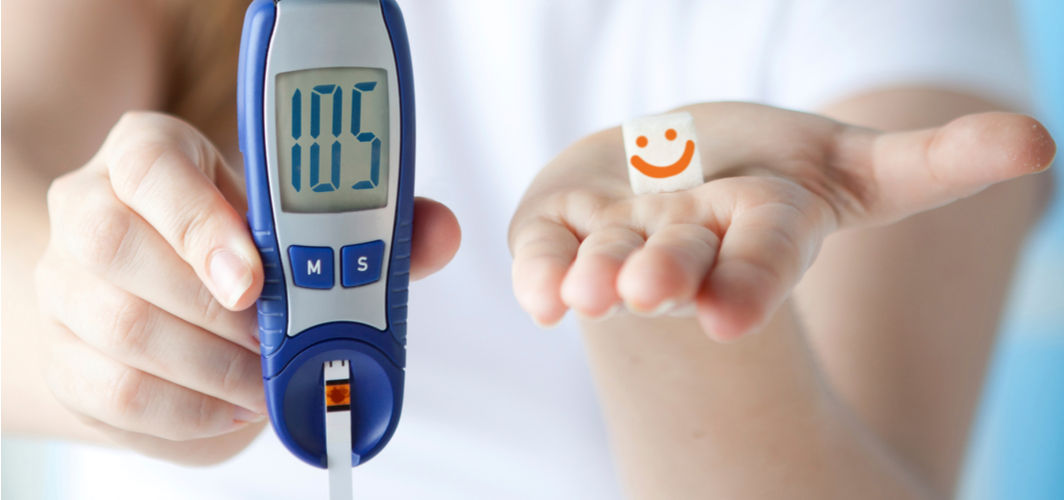Diabetes Management
Why urinary tract infection occurs commonly in diabetics?
4 min read
By Apollo 24/7, Published on - 19 December 2020, Updated on - 11 December 2023
Share this article
0
0 like

What is urinary tract infection (UTI)?
If the infection is in the urinary bladder, it is called cystitis.
If the infection is in the urethra (the tube-like part that allows urine to pass out of the body), it is called urethritis.
If the infection reaches the kidneys, it is called pyelonephritis.
Why are diabetics prone to urinary tract infections?
A higher concentration of glucose in the urine allows the disease-causing bacteria to grow.
High glucose levels in the renal parenchyma (a part of the kidney) provide a favourable environment for the multiplication of microorganisms, which ultimately results in the kidney getting infected.
Impairment of different types of immunity (humoral, cellular and innate immunity) in diabetics allows the disease-causing bacteria to cause infection.
Nerve damage (neuropathy) in the urinary tract of diabetics can result in urinary retention and inability to urinate properly, thus resulting in reduced bacterial clearance and increased chances of infection. Studies reveal 26% to 85% of diabetic women develop bladder dysfunction due to diabetic neuropathy.
What are the signs of urinary tract infection in diabetics?
Constant feeling of the need to urinate
Pain or burning sensation while urinating
Foul-smelling urine
Cloudy urine
Pain in the abdomen and the back
Blood in the urine
Diarrhoea
High fever
Chills
Vomiting
Pain in the back and side (flank)
How can urinary tract infections be prevented?
Maintain normal blood sugar level as too much glucose (sugar) in the urine would encourage bacterial growth in the urinary tract.
Try and keep the genital area clean and dry. Do not use a scented soap or intimate wash products as they can irritate the genital region.
Carefully clean and wipe the genital area from front to back after urinating or passing stool.
Drink plenty of water so that any bacteria in the tract gets flushed on passing the urine.
Wash the genitals with water (especially women), before and after sexual intercourse.
Urinate after sexual intercourse.
Do not hold the urine.
Do not rush to empty the bladder while urinating.
Wear cotton-based undergarments and avoid synthetic underwear.
Change adult diapers or pads immediately if they are soiled.
Avoid or limit alcoholic beverages as they can irritate and inflame the urinary bladder.
What can be done to treat urinary tract infections in diabetics?
Takeaway
You can also try the Apollo 24|7 Diabetes Self-Management Tool to log your sugar values, track patterns, know all about food nutrition and more.
Diabetes Management
Consult Top Diabetologists
View AllLeave Comment
Recommended for you

Diabetes Management
Adding a Smile to Your Diabetes Management
Oral hygiene is crucial for diabetics. Diabetes increases the risk of gum diseases like tooth decay and cavities. Hence, regular brushing, flossing, and dental check-ups are essential for diabetics to maintain good oral health and support overall well-being.
.jpg?tr=q-80)
Diabetes Management
Superfoods to Prevent Diabetes in Prediabetics
In the fight against diabetes, every bite matters. Prediabetes isn't a life sentence but a wake-up call to tweak your lifestyle. Fill your plate with superfoods like leafy greens, berries, nuts, seeds, and whole grains that help keep blood sugar levels in check. Remember, portion control and consistency in physical activity are just as vital. Seek personalised advice for your dietary plan – your path to better health could be just a consultation away with Apollo's Super 6 programme.
.jpg?tr=q-80)
Diabetes Management
Diabetes and Depression: A Holistic Guide to Managing Both
Managing diabetes and depression together may seem overwhelming, but it's not impossible. Understanding the connection between both conditions and adopting a comprehensive approach can help in effective management. Consistent care, lifestyle changes, psychological support, and medication management are keys to better health. Join programmes like the Apollo Super 6 for personalised support tailored to your needs.
Subscribe
Sign up for our free Health Library Daily Newsletter
Get doctor-approved health tips, news, and more.
Visual Stories

8 Fruits That are Incredibly Healthy for Diabetes
Tap to continue exploring
Recommended for you

Diabetes Management
Adding a Smile to Your Diabetes Management
Oral hygiene is crucial for diabetics. Diabetes increases the risk of gum diseases like tooth decay and cavities. Hence, regular brushing, flossing, and dental check-ups are essential for diabetics to maintain good oral health and support overall well-being.
.jpg?tr=q-80)
Diabetes Management
Superfoods to Prevent Diabetes in Prediabetics
In the fight against diabetes, every bite matters. Prediabetes isn't a life sentence but a wake-up call to tweak your lifestyle. Fill your plate with superfoods like leafy greens, berries, nuts, seeds, and whole grains that help keep blood sugar levels in check. Remember, portion control and consistency in physical activity are just as vital. Seek personalised advice for your dietary plan – your path to better health could be just a consultation away with Apollo's Super 6 programme.
.jpg?tr=q-80)
Diabetes Management
Diabetes and Depression: A Holistic Guide to Managing Both
Managing diabetes and depression together may seem overwhelming, but it's not impossible. Understanding the connection between both conditions and adopting a comprehensive approach can help in effective management. Consistent care, lifestyle changes, psychological support, and medication management are keys to better health. Join programmes like the Apollo Super 6 for personalised support tailored to your needs.


